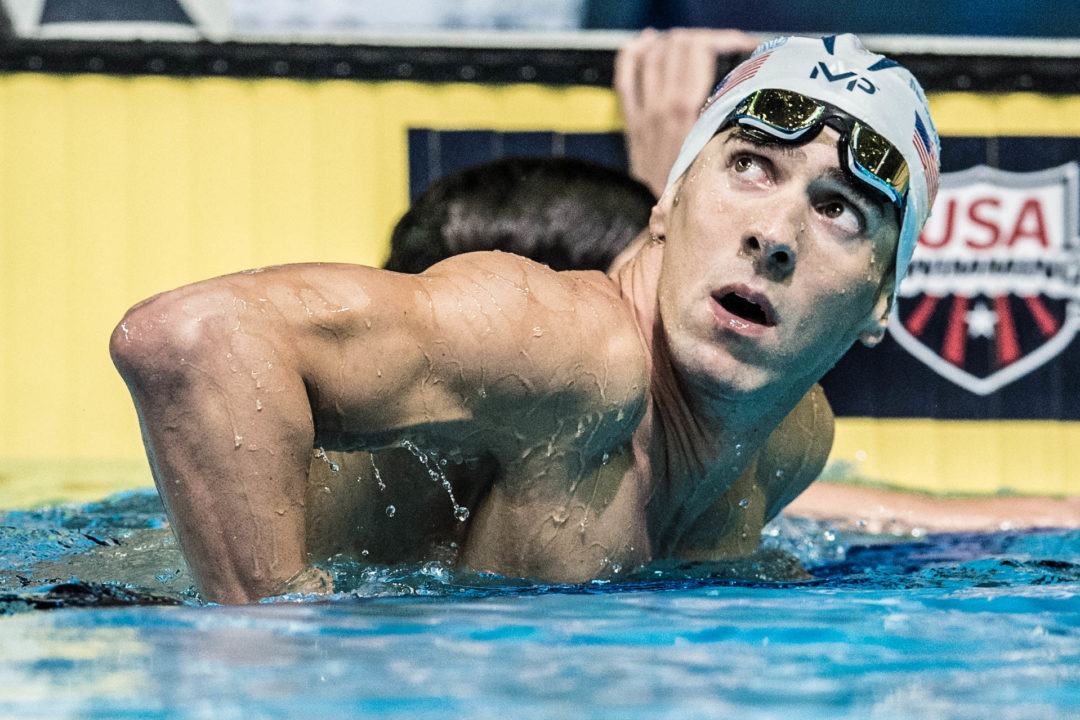Courtesy of Chad Castillo, aka Coach C. Read more of Chad’s Work at SwimCoach.org.
We were only half way through the main set and I had reached my breaking point. I thought, “If I feel this bad now, how bad will the next one feel?”. I let my mind wander. I started comparing myself to my team mates. Thoughts like, “Jamie probably doesn’t feel this way”, or “Nicole’s stroke looks great, I wish I had her effortless stroke” were racing through my head. I was scared of what was coming next and there was no coming back. I decided to stop and tell the coach that my shoulder hurt. I spent the next 20 minutes looking for a Tylenol.
I was ashamed and disappointed in myself. How could I fake an injury? I beat myself up over it the rest of the day. It’s something that still delivers a sting whenever I dredge it up.
That is a bad place for an athlete to be. Feeling depressed about your actions, knowing that a weak mental/physical state caused them. Your self esteem takes a major hit and going back to the pool is more difficult than ever. This is not a winning formula to keep athletes in our sport. Furthermore it’s not fair for a coach to put an athlete in that position without any guidance on how to get out.
What advice can coaches give their athletes to become more mentally tough beyond saying “toughen up”? What tools can a coach give their athletes to help them deal with challenges, setbacks, and self doubt?
One tool that I am trying to understand and help my athletes develop is gratitude.
Gratitude is: the quality of being thankful; readiness to show appreciation for and to return kindness. Robert E Emmons Ph.D, professor of psychology at U.C Davis, and one of the leading researchers on gratitude, has demonstrated the positive mental and physical aspects of developing a consistent gratitude practice
I feel that there are 3 main benefits that athletes can gain by practicing gratitude consistently.
1. Better Sleep (Supported by: Applied Psychology – health and well being)
If an athlete feels more grateful about where they are in their life/ training then they are more likely to get better sleep. More and more research is coming out proving that the quantity and quality of a person’s sleep affects all aspects of their life. For athletes sleep has been directly related to the quality of mental and physical recovery. If athletes can recover more quickly they will be able to train at a higher level more frequently. This leads to more quality time in the pool which should lead to better outcomes at the end of the season.
2. Improves Self Esteem (Supported by: Journal Of Applied Sport Psychology)
Having a consistent gratitude practice has been shown to increase overall happiness and decrease depression. This is important for athletes because when a setback ultimately happens they are in a mental state that allows them to quickly learn and move from the moment. The mind won’t dwell on the setback as long as it may have without regularly practicing gratitude.
Gratitude can also increase an athlete’s feeling of self worth. When the decision to stay out late with friends or go home and rest comes up, a person that feels that they are worthy of a goal will most likely make the decision that helps them achieve that goal.
3. Increases Mental Strength (Supported by: Behavior Research and Therapy)
Practicing gratitude gives athletes an insight into what is most important in their lives. A consistent gratitude practice has also been shown to increase appreciation of one’s life. This appreciation allows the athlete to gain perspective on negative events that occur. Imagine an athlete who can put a bad performance or a bad meet into perspective, and then reflect on why the meet did not go the way they wanted. This athlete has a mental edge over every competitor they face.
Gratitude practice has even helped Vietnam Vets and 9/11 survivors make strides towards recovery. It is thought that the consistent practice of gratitude gives trauma survivors perspective on the negative events that they have experienced and allows them to guard against Post Traumatic Stress.
How should you help your athletes practice gratitude?
Some methods that Dr Emmons uses to help his patients establish and maintain a consistent gratitude practice are:
- Daily/Weekly Journaling
- Practicing counting your blessings
- His blog post on “10 ways to become more grateful” may also help
Tony Robbins has also developed a practice for gratitude that he teaches to help solve internal conflict. You can find it as one of Tim Ferris’ podcasts.
Personally I have been trying to count my blessings every morning before I roll out of bed. I try to say 5 things that I am grateful for before I look at my phone, drink my coffee or get my kids out of bed. I do feel differently after my morning gratitude practice. The difficult part is to remember to do t!
Helping our athletes become more grateful and confident is a gift that goes beyond the walls of the pool. If we can help our athletes increase their mental strength and give them strategies to improve their self esteem their attitude towards swimming and their lives can only improve. I hope you give gratitude practice a try. Let me know how it goes in the comments below or at [email protected].
At your service,
Coach C
Read more of Chad’s Work at SwimCoach.org.
